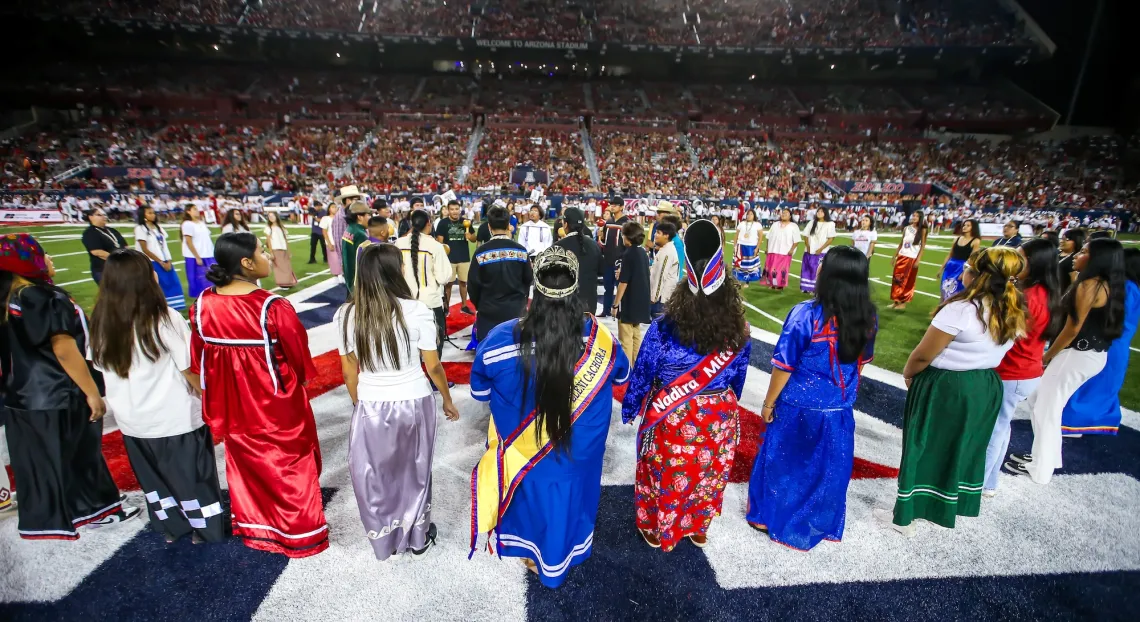How the University of Arizona is becoming the 'leading institution' serving Native Americans

Members from the Ak-Chin Indian Community, the Gila River Indian Community, the Salt River Pima Maricopa Indian Community gathered at center field for a cultural display featuring singing and traditional gourd rattles at the Sept. 2 football home opener against Northern Arizona.
Photo by Rebecca Sasnett/Arizona Athletics
As the sun set over Arizona Stadium on Sept. 2, attendees at the Wildcats home opener against Northern Arizona were given a rare opportunity.
During the football game's halftime, leaders and youth council members from Arizona's four O'odham tribes – the Ak-Chin Indian Community, the Gila River Indian Community, the Salt River Pima Maricopa Indian Community and the Tohono O'odham Nation – streamed onto the field, gathered at the center, and arranged themselves in a circle. They then sang a sacred song and played traditional gourd rattles before the tens of thousands in the stadium crowd.
The musical interlude was one of several during the game that were designed to honor the sovereignty of all of Arizona's 22 federally recognized tribes, with an emphasis on the O'odham tribes, whose people are native to the Sonoran Desert. Before kickoff, attendees also watched a video of University leaders reciting the land acknowledgement statement, which recognizes the University's location on the homelands of the O'odham and Yaqui.
Shania Little Feather Manuel, a member of the Tohono O'odham Nation, sang "The Star-Spangled Banner" alongside the Tohono O'odham Nation color guard.
During other displays on the field during other game breaks, President Robert C. Robbins and Levi Esquerra, the University's senior vice president for Native American advancement and tribal engagement, whose office organized the mid-game programming in partnership with the tribes, recognized tribal leaders.
The traditional display that happened during halftime is rarely shared with non-tribal members, said Christina C. Bell Andrews, a member of the Tohono O'odham Nation and executive director of the University's Wassaja Carlos Montezuma Center for Native American Health, who attended the game and helped organize the events.

